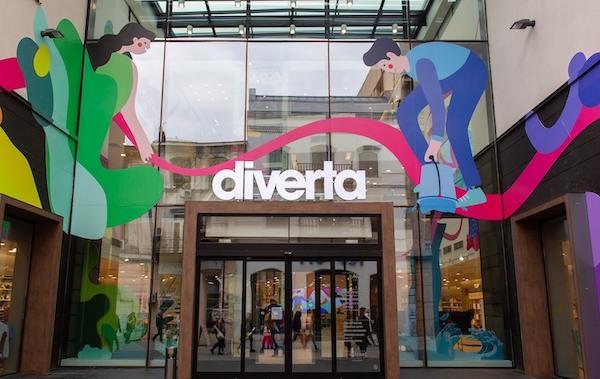CITR has been appointed judicial administrator of Diverta

CITR, part of Impetum Group, has been appointed judicial administrator of the Diverta bookstore network, the largest integrated retailer in the field of books, stationery and toys, which has requested its entry into insolvency as a result of difficulties encountered in the crisis generated by the pandemic.
"In the case of Diverta, CITR aims to reorganize the company in a unique way, with concentrated stages, for a speedy recovery. It is an ambitious new project for us, in line with our mission to save companies in difficulty, brands and people through the multidisciplinarity and vast experience of the CITR team. Diverta will have a future in a new economy ", said Aurel Podariu, Business Development Manager of Impetum Group and Senior Partner, CITR.
The strategy for saving this 100% Romanian brand will be based on the most profitable business areas, financial and operational restructuring and last but not least, on the estimated evolution of the market and the lessons of the previous crisis. The CITR team will start with the analysis of the Diverta business, especially the understanding of the challenges of the previous year and will identify the most appropriate way to reorganize. All this will contribute to supporting the stakeholder ecosystem around Diverta, in order to create the necessary partnership for a successful reorganization. The legal deadlines for submitting the documents are available on the website of the Bucharest Tribunal.
"The period of the pandemic, which began with the closure of shopping centers and traffic restrictions, meant for Diverta and for traditional retail in general a significant decrease in sales and the accumulation of debt to suppliers. All this had a domino effect and affected one by one the pillars of our business. Because CITR is renowned for innovative solutions, it was our first choice when we realized that we were at a standstill, to ensure that the value of the Diverta brand is saved and will continue, ”said Amalia Buliga, CEO of Diverta.
The CONFIDEX study conducted by Impetum Group confirms that the main challenges of the pandemic felt by Romanian managers were marked by declining sales, lack of cash flow and lack of predictability. In addition, managers also felt strongly the staff crisis and the increase in production costs from 7% in the first quarter to 25% in 2021. The CONFIDEX index, which shows the confidence of Romanian managers in the economy, in the trade sector, evolved in pandemic from a value of 42.1 at the beginning of the period to 49.2 after 1 year (on a scale from 0 to 100). This evolution indicates a growing optimism, but a fluctuating one, marked not only by the pandemic crisis itself, but also by other factors that influence the economy.
In the first four months of the year, the number of insolvent companies increased by almost 45% compared to the same period in 2020
According to CITR analyzes, 50% of entrepreneurs postpone the company's insolvency for fear of stigma, but timely access to the procedure, from the earliest stages of difficulty, increases the success rate of recovery. The good news is that, once the procedure is accessed, 63% of entrepreneurs say they have positively redefined their contractual relations with business partners, and 78% of creditors say they want to maintain business relationships during and after insolvency, the data show. CITR. By taking steps towards recovery and with the trust of business partners, Romanian companies can successfully reintegrate into the economic circuit.
With the implementation of the new European Directive in the field of restructuring and insolvency prevention at the level of Romanian legislation, a project in which CITR has the role of consultant at national level, we expect the efficiency of restructuring mechanisms to be significantly improved and the number of business prevention procedures accessed by to companies to grow considerably. At the same time, the new legislation will contribute to the creation of a culture of prevention in business.
Thus, 2021 becomes the year of prevention in business, a year in which companies have the opportunity to reinvent themselves for the new economy, to adapt their strategies and products and to innovate. Last but not least, to look at their mistakes as an engine of evolution.






